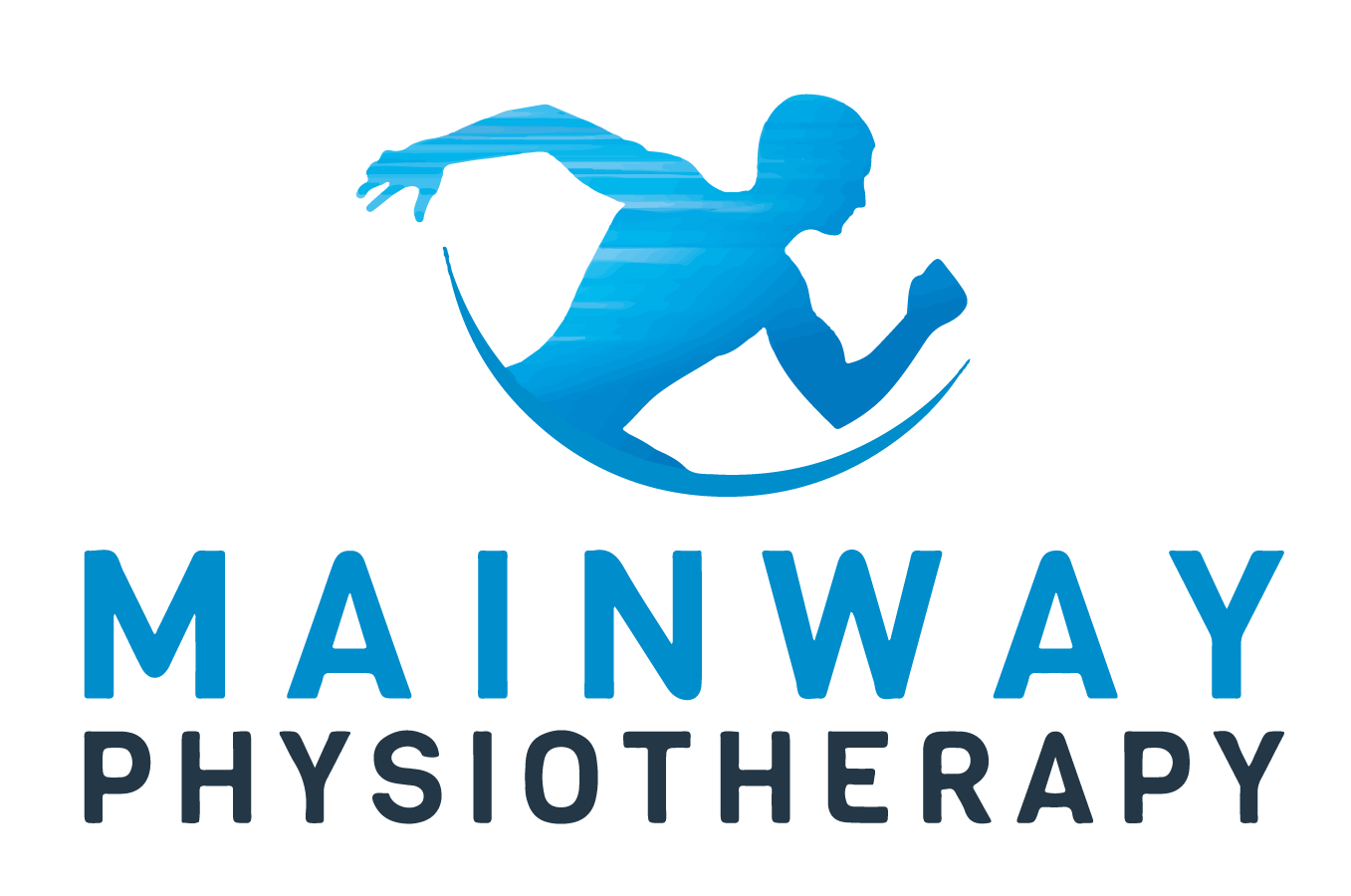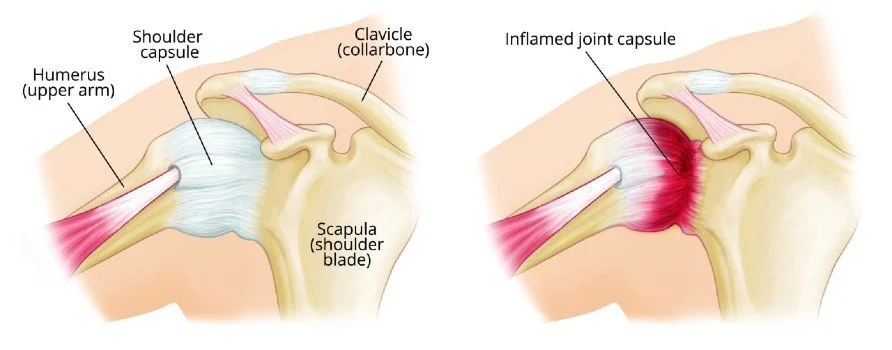Frozen Shoulder and Treatments
Frozen shoulder, also called adhesive capsulitis, is a painful condition causing extreme stiffness or limited immobility in the shoulder.
It occurs when the strong connective tissue surrounding the shoulder joint (shoulder joint capsule) thickens and becomes stiff and inflamed. The joint capsule contains ligaments that attach the top of the upper arm bone to the shoulder socket, firmly holding the joint in place (ball and socket joint).
Frozen shoulder can be a difficult and very painful journey, but there are options to help you with the pain and feel better.
Dealing with frozen shoulder with Physiotherapist Deanna Jensen -
There are three stages of frozen shoulder:
Freezing - In the "freezing" stage, you slowly have more and more pain. As the pain worsens, your shoulder loses range of motion. Freezing typically lasts from 6 weeks to 9 months.
Frozen - Painful symptoms may actually improve during this stage, but the stiffness remains. Daily activities may be very difficult during the 4 to 6 months of the "frozen" stage.
Thawing - Shoulder motion slowly improves during the "thawing" stage. Complete return to normal or close to normal strength and motion typically takes 6 months to 2 years.
Who is at risk of frozen shoulder
Adults between 40 and 60 years old.
More common in women than men.
A shoulder injury or surgery results in the need to keep the shoulder from moving (using a shoulder brace, sling, shoulder wrap, etc.). Examples include a rotator cuff tear and fractures of the shoulder blade, collarbone or upper arm.
Mainway can help to get your shoulder moving again.
The most important part of recovery is to get the shoulder moving again.
We can do this with the following therapies -
Using evidence-based techniques, manual therapy can reduce pain and improve movement and overall function. Sometimes heat is used to help loosen the shoulder up before stretching.
Stretching or range of motion exercises for the shoulder and teaching you some movement exercises you can do at home.
Ultrasound, combined with other physical modalities, is an effective means of improving the overall pain.
TENS-a small battery-operated device that reduces pain by blocking nerve impulses.
Acupuncture is safe and effective in reducing pain.
Deanna Jenson on ways to improve frozen shoulder -
Deanna graduated with her Master of Science in Physiotherapy from McMaster University. She is certified to work in Manual Therapy and is a member of the Acupuncture Division with the Canadian Physiotherapy Association certified to perform acupuncture through the McMaster University Contemporary Acupuncture for Healthcare Professionals program.
The team at Mainway Physiotherapy will provide a thorough one-on-one assessment to develop individualized client-centred goals that will enable you to return to an active, pain-free lifestyle.



